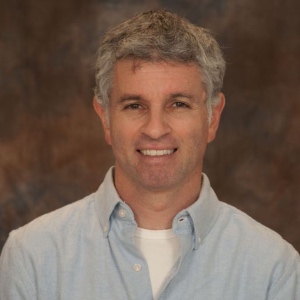Graduate Seminar Series
March 17, 2023
10:00 a.m. ET
7500 Wean Hall
March 17, 2023
10:00 a.m. ET
7500 Wean Hall
The next generation of electronics and optoelectronics is dependent on new materials and methods that can be integrated with current technologies or reach beyond the capabilities of silicon based devices. Two-dimensional materials have emerged as promising candidates to achieve such goals. As is common for new materials, much of the early work has focused on measuring and optimizing intrinsic properties on small samples (e.g., micromechanically exfoliated flakes). However, real-world devices and systems inevitably require large-area samples that are integrated with other materials (e.g. dielectrics, other semiconductors and contacts). These requirements are particularly challenging due to the ultra-thin nature of 2D materials. This talk will thus focus on the current status of chemical vapor deposition (CVD) methodologies for studying the growth mechanism of atomically-thin semiconductors of the transition metal dichalcogenide (TMDC) family to achieve large-area and high quality films. In this regards, our attempts for the rational growth of layered materials and their heterostructures will be described. These include; standard metal-oxide CVD type of growth in confined spaces or at well-defined seeds and the more promising metal-organic CVD pulsed approaches leading to large single-crystal domains and quasi-van der Waals epitaxial growth. The latter will be discussed in detail.
 Ismach holds a BSc. in Materials Engineering from Ben-Gurion University of the Negev, and an M.A. and Ph.D. in Materials and Interfaces from the Faculty of Chemistry, Weizmann Institute. He was awarded a prize from the Israel Chemistry Society for his doctoral thesis on “epitaxial approaches for the self-organization of single-wall carbon nanotubes.” In 2009 he moved to Berkeley for a post-doctoral position at the Department of Electrical Engineering, University of California–Berkeley and the Materials Science Division of the Lawrence Berkeley Laboratory. In 2011 he joined the group of Prof. Ruoff in the department of Mechanical Engineering, at the University of Texas in Austin, to study the growth and characterization of various 2D materials. He joined the Materials Science and Engineering department at Tel Aviv University in October 2014, as the head of the 2D Materials Laboratory. Prof. Ismach's current research interests includes the development of methodologies for the growth of atomically-thin semiconductors and their heterostructures, study of their growth mechanism, charge transfer in 2D heterostructures (organic-inorganic) and surface chemistry modification schemes.
Ismach holds a BSc. in Materials Engineering from Ben-Gurion University of the Negev, and an M.A. and Ph.D. in Materials and Interfaces from the Faculty of Chemistry, Weizmann Institute. He was awarded a prize from the Israel Chemistry Society for his doctoral thesis on “epitaxial approaches for the self-organization of single-wall carbon nanotubes.” In 2009 he moved to Berkeley for a post-doctoral position at the Department of Electrical Engineering, University of California–Berkeley and the Materials Science Division of the Lawrence Berkeley Laboratory. In 2011 he joined the group of Prof. Ruoff in the department of Mechanical Engineering, at the University of Texas in Austin, to study the growth and characterization of various 2D materials. He joined the Materials Science and Engineering department at Tel Aviv University in October 2014, as the head of the 2D Materials Laboratory. Prof. Ismach's current research interests includes the development of methodologies for the growth of atomically-thin semiconductors and their heterostructures, study of their growth mechanism, charge transfer in 2D heterostructures (organic-inorganic) and surface chemistry modification schemes.